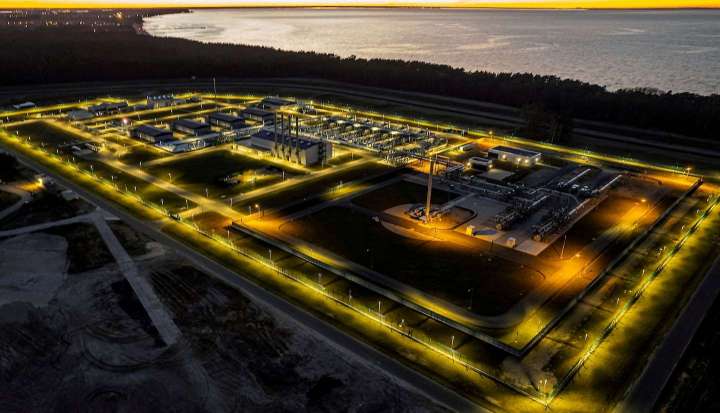PARIS — European Union member states on Tuesday agreed on a plan to reduce gas consumption amid looming shortages, although, in the wake of resistance from southern European countries, the measures are less far-reaching than originally conceived.
E.U. agrees to watered-down gas rationing plan after initial resistance

The exemptions — which could apply in a wide range of cases — had not been part of the earlier plans.
The nations most opposed to the tougher measures that had initially been envisioned — Spain and Portugal, supported by France and other countries — argue that curbs without exemptions would have been an illogical sacrifice, given that they rely less on Russian gas and so have sufficient gas supplies. They are also still recovering from the economic fallout of the coronavirus pandemic and believe that countries like Germany, which have long relied on Russian gas, should carry the biggest burden.
Tuesday’s announcement came a day after Russian energy giant Gazprom said it would halve the natural gas flowing through its main pipeline to Germany, putting Berlin in a particularly difficult position.
The country’s political establishment for years viewed itself as a prudent guardian of European economic and political stability, pushing for tough austerity measures in countries like Spain, Greece and Portugal in the wake of the financial and sovereign debt crises, and condemning southern nations for supposedly living off the hard-earned income of northern and central Europeans.
People in Spain or Portugal should stop taking siestas and retiring early, leading German politicians and commentators repeatedly advised.
Germany now finds itself in a very different position: Criticized for having ignored warnings over its long-standing reliance on Russian gas, it now needs the support from nations it has long portrayed as economic burdens.
E.U. countries had already agreed to phase out Russian fossil fuels by 2027. But the flow of gas may stop far sooner.
“The winter is coming and we don’t know how cold it will be, but what we know for sure that Putin will continue to play his dirty games,” Jozef Sikela, the Czech Republic’s minister of industry and trade, said Tuesday. European officials have accused Russia of using repairs as a pretext to squeeze Europe, causing prices to soar and giving President Vladimir Putin leverage against Western countries backing Ukraine in the war.
Germany has in particular been singled out for the E.U.’s reliance on Russian gas, with the country having at times depended on Russia for over half of its supply.
“Unlike other countries, we Spaniards have not lived beyond our means from an energy point of view,” Spanish Ecological Transition Minister Teresa Ribera Rodríguez said last week, in an apparent reference to Germany.
Researcher have raised doubts over the assertion that gas curbs in Spain or Portugal would benefit Germany and other countries that are facing shortages. “Portugal, Spain and France are effectively isolated from the wider European market because of limited connections between Spain and France, and France and the north and east,” Ben McWilliams and Georg Zachmann, two research analysts with the economic policy think tank Bruegel, wrote in an analysis.
There are only limited options for those countries to share additional gas with their more-affected E.U. partners, for example by rerouting Algerian gas from Spain to Italy, which also has a heavy dependence on Russian supplies, they wrote.
Starting Wednesday, the daily gas flow through the Nord Stream 1 pipeline — the biggest between Russia and Western Europe — will be set at 33 million cubic meters, Gazprom said Monday. That amounts to about 20 percent of capacity, down from 40 percent. Gazprom cited problems with a turbine. Germany’s Ministry for the Economy and Climate said it saw no technical reason for the reduction in deliveries.
Germany is still dependent on Russia for around a third of its supplies and has been racing to fill up its gas storage facilities so that there will be enough supplies to heat homes this winter. This week’s further pipeline reductions will hamper German plans to have storage capacity 75 percent full by September and 95 percent by November.
Germany has begun to cut consumption wherever it can. Some landlords are rationing hot water, which has been turned off in many public buildings, while lights have been dimmed and public fountains lie still.
Ariès reported from Brussels. Loveday Morris in Berlin contributed to this report.






